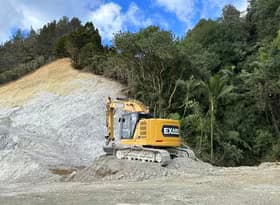Winston Peters gets his slowdown
Infometrics April Forecasts – media release
The prediction by Winston Peters of an economic correction or slowdown, made at the time of last October’s coalition announcement, appears to be coming true. Infometrics’ latest forecasts see New Zealand’s economic growth slowing to 2.4%pa by the end of this year and slipping below 2.0%pa during 2019.
A range of factors have combined to drive the slowdown, many of which can be sheeted back to government policy.
Changes in infrastructure priorities will result in a 2.9% contraction in government investment spending between now and September 2019, which is a sharp contrast from the growth that had been predicted prior to the election. “The dumping of major roading projects in favour of rail and public transport initiatives will create a near-term hole in government investment,” says Infometrics Chief Forecaster Gareth Kiernan. “It is possible that some of the slack might be picked up by infrastructure projects as part of the Provincial Growth Fund, but the slow wheels of government mean it could be 2020 before investment spending really recovers.”
Housing market uncertainty could also limit economic growth over the next year as the government clamps down on foreign buyers of residential property and capital gains rules for investors. Although the market has been stimulated somewhat from the start of 2018 by more relaxed loan-to-value restrictions, developers remain cautious about pushing ahead with new projects given these areas of uncertainty and cost pressures in the industry. And all indications are that KiwiBuild will provide a smaller and more delayed boost to residential construction than the government has suggested.
The current economic slowdown will amplify the effects of policy changes on migration during 2019 and 2020. Infometrics forecasts that the annual net inflow will ease from 68,900 currently to below 17,000 by early 2021. This slowdown in population growth will mitigate some of the demand pressures in the Auckland housing market, but the region’s housing undersupply and affordability issues are likely to remain critical.
“We are not arguing that some of the changes being introduced by the Labour-led government, around transport policy, housing, or migration, are not necessary or well-intentioned,” says Mr Kiernan. “But it is becoming clearer that the transition phase could result in a less buoyant performance by the economy over the next couple of years.”
The lack of progress on spending in the near-term is likely to be counterbalanced by faster growth over the medium-term. Infometrics predicts that GDP growth will average 2.1%pa between mid-2020 and mid-2023, a stronger performance than had previously been on the cards. There will be some catch-up in government investment spending as infrastructure projects get underway, while more expansionary fiscal policy is also likely to be reflected via faster growth in government consumption.
ENDS
For more information contact:
Chief Forecaster, Infometrics
email: garethk@infometrics.co.nz
phone: 021 119 3876











